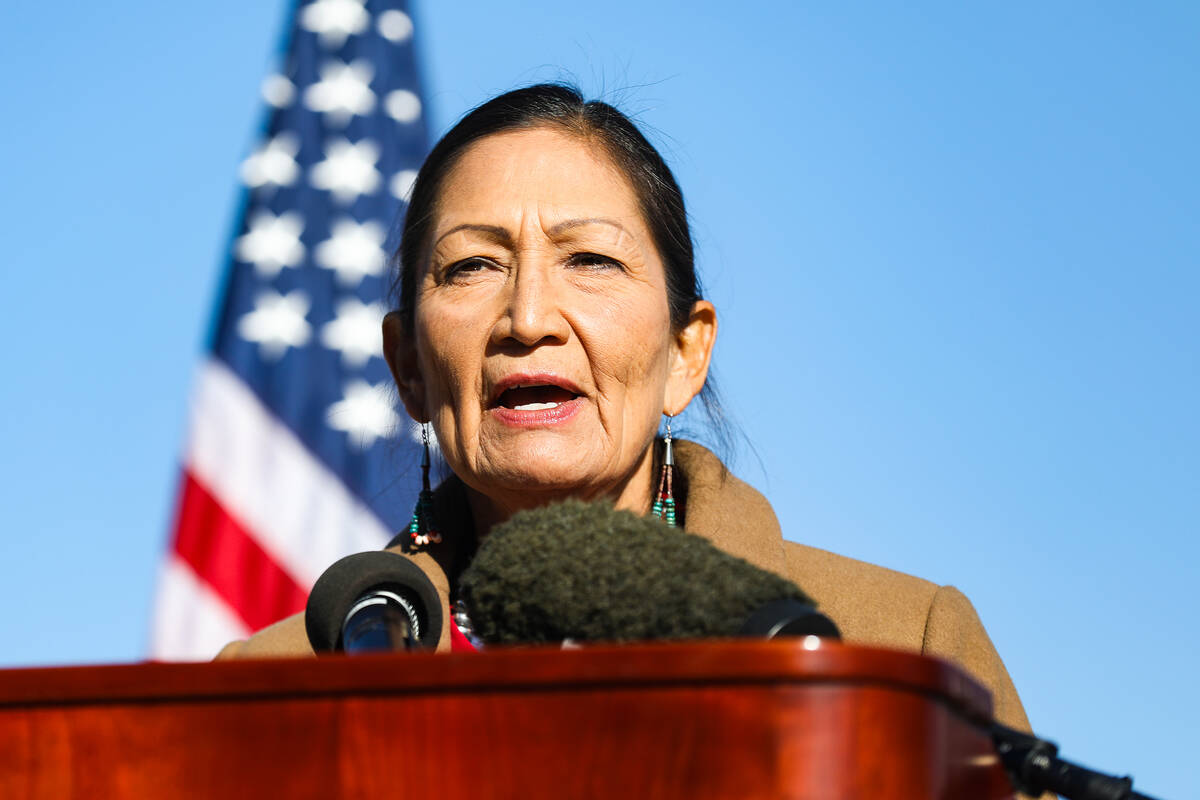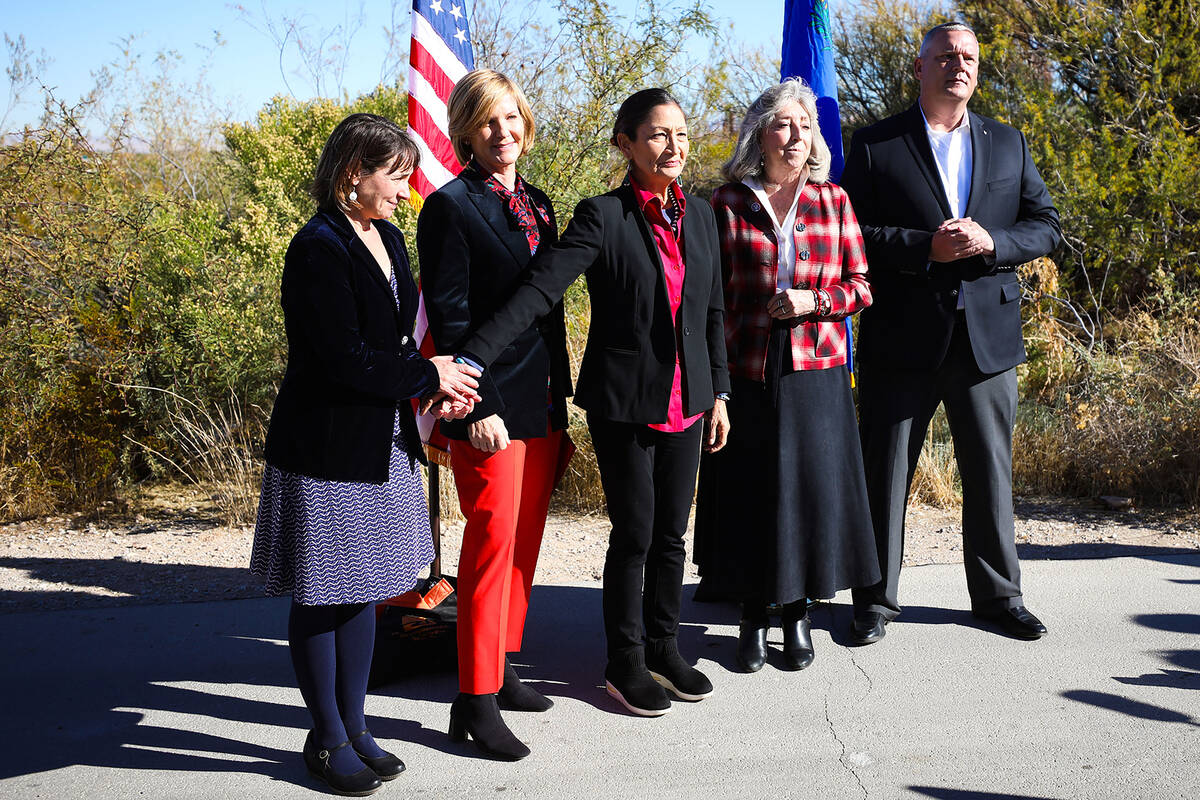Haaland: Infrastructure law aids drought resilience
Interior Secretary Deb Haaland on Sunday, Dec. 12, touted a recently signed $1.2 trillion infrastructure package, saying the law makes a historic investment in water and drought resilience.
During a visit to Springs Preserve in Las Vegas, Haaland said the new law will pay for water efficiency and recycling programs, rural water projects and grants, among other things. But she also recognized the need to do more, saying her department is committed to protecting water resources not only during times of drought, but every day.
“As we navigate this growing crisis, we’re committed to robust and continued engagement with state, local and tribal governments to develop longer-term measures to respond to climate change and improve water security,” she said.
It was the latest stop in the Biden administration’s “Building a Better America” tour, a series of events featuring administration officials lauding the infrastructure package.
Haaland’s visit comes as Nevada faces mandated water cuts from the first federally declared shortage on Lake Mead.
The secretary was joined in Las Vegas by Democratic U.S. Reps. Dina Titus and Susie Lee, Southern Nevada Water Authority General Manager John Entsminger and the Department of the Interior’s assistant secretary for water and science, Tanya Trujillo.
Haaland said her department is helping to lead the Biden administration’s all-of-government approach to fighting drought by coordinating at the federal level, providing help to drought-stricken communities and developing long-term climate change solutions.
“There is an urgent need to minimize the impacts of drought and develop a long-term plan to facilitate conservation and economic growth, because drought doesn’t impact just one community, it affects all of us, from farmers and ranchers, to city dwellers to tribes,” she said.
What’s in the law
The infrastructure law, signed last month by President Joe Biden, contains $8.3 billion for Western water infrastructure. It includes $450 million for a competitive grant program that could help pay for a massive recycling project in Southern California that would leave Nevada with access to more water in Lake Mead.
The law also includes $2.5 billion for tribal water rights settlements, Haaland said.
“We at the department are committed to upholding our trust responsibilities and delivering long-promised water resources to tribes, certainly to all their non-Indian neighbors, and a solid foundation for future economic development for entire communities dependent on common water resources,” she said.
Of the more than $8 billion set aside for Western water infrastructure, $300 million will go toward implementing aspects of the 2019 Drought Contingency Plan.
New conservation plan
This year, water level projections triggered a provision in the 2019 agreement that forces the lower basin states to discuss ways to prevent Lake Mead from falling below a critical level.
A $100 million plan being developed in the lower basin would scale back the amount of water taken from the lake. Those reductions would be in addition to federally mandated cuts from the shortage declaration.
Asked whether the federal government would contribute money to those efforts, Trujillo was noncommittal.
“We take the responsibility very seriously and are looking forward to the upcoming Colorado River water users conference and working with our partners on announcing some agreements relating to that and supporting, again, the good work that has been going on in Nevada, in Arizona, in California and with our partners in Mexico, who are very, very key to the success of a sustainable river basin going forward,” she said.
The Colorado River Water Users Association conference is being held in Las Vegas this week.
Contact Blake Apgar at bapgar@ reviewjournal.com or 702-387-5298. Follow @blakeapgar on Twitter.

















